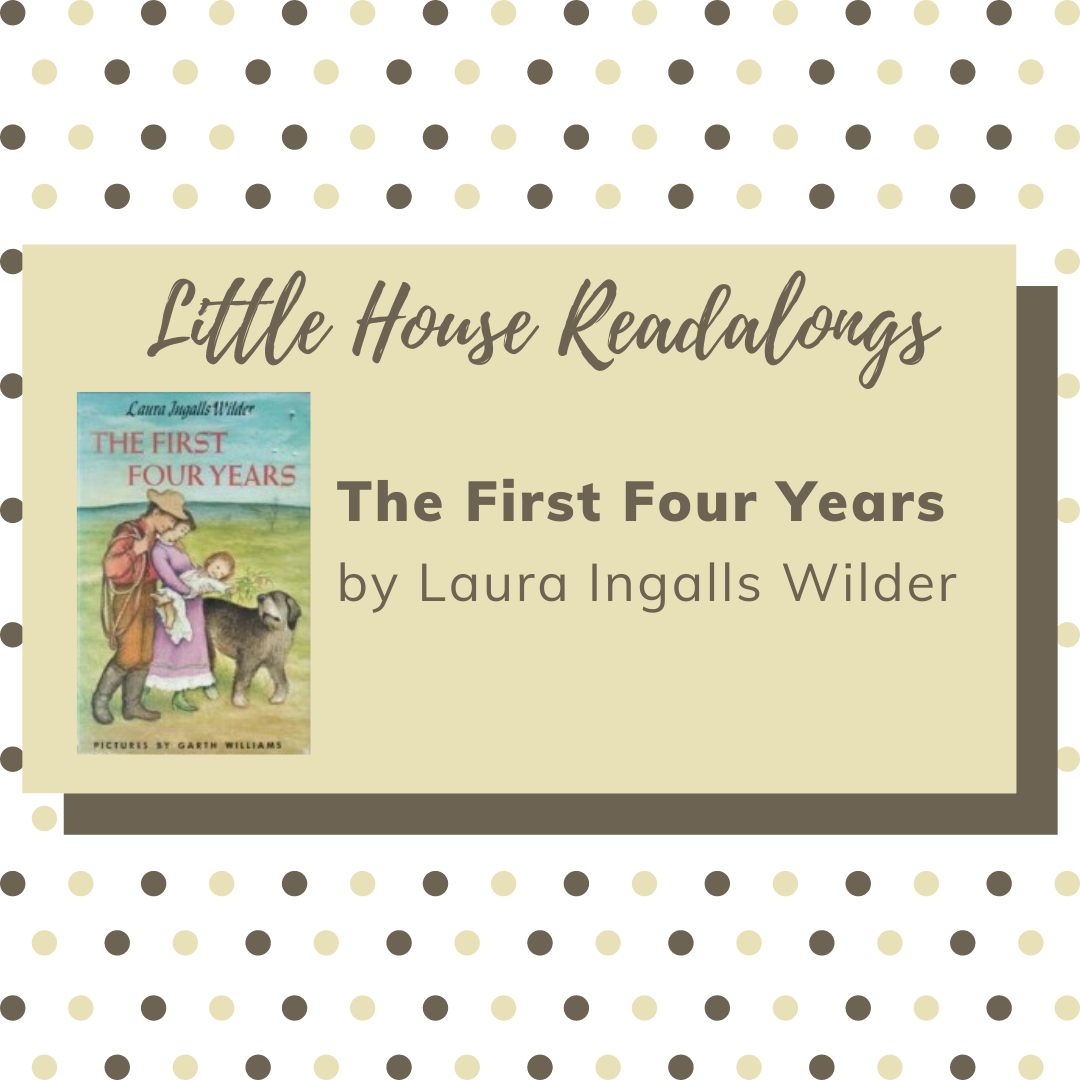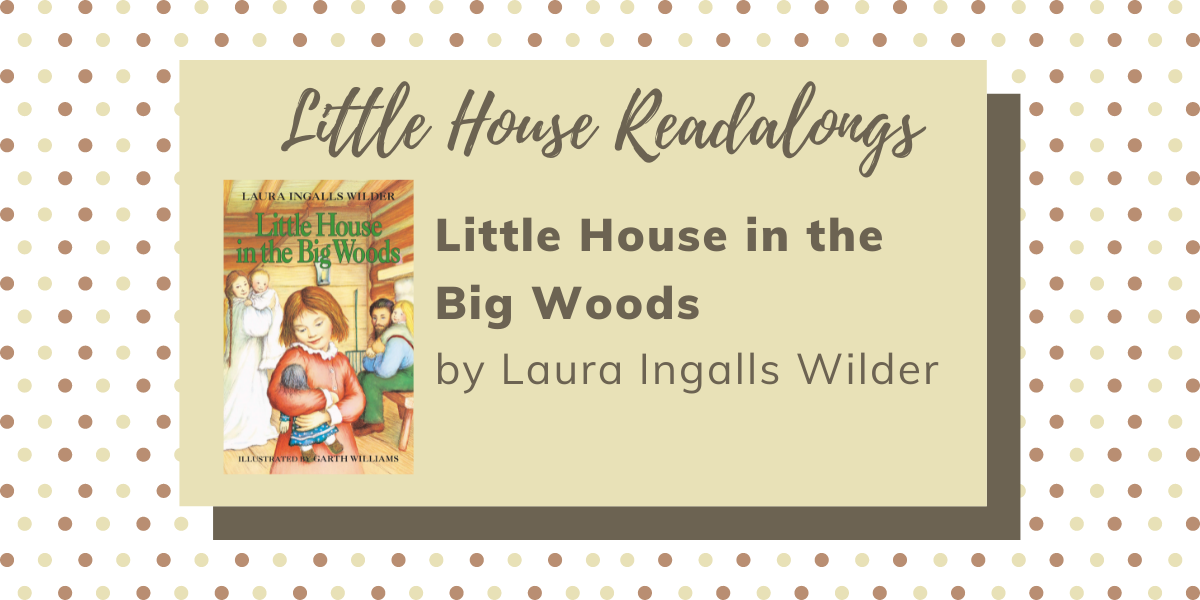
Guest post by Melanie Fishbane
We leave the third year behind, a year where Manly suffered the stroke that would leave him partially paralyzed for the rest of his life. The stroke that probably meant that he could no longer do the work that he wished to do, to be the farmer he had dreamed he could be. Yet, when we begin this “Year of Grace,” Laura asks Manly if with all that they had suffered if their farming was a success, and he says, “Well, I don’t know, it is not so bad.” Not so bad.
Well, Wilder does say that Manly’s hands were not so “stiff and clumsy” so perhaps he’ll be able to hitch up the horse himself. Manly isn’t going to let a stroke or poverty get him down! Instead, he focuses on all that he and Laura do have. All they need is one good crop and it will all be okay, he tells her. One good crop. The dreamer emerges once again and I think that was one of the things that Laura must have loved about him for she was one, too, and so she agrees.
Still, the title of this section feels like a bit of lie. Things might seem okay, but there’s a foreboding within these ten pages because I know what’s coming. We see it in Laura’s worrying about the debt. Being Ma’s and Pa’s daughter she doesn’t like the idea of owing anyone money. She worries that the binder hasn’t been paid yet and it was hard to make the interest payments. And they buy two of the heavy oxen, King and Duke, to give their horses a break and do the light work. And while we see the reasoning behind it, there is still that lingering whisper, “Why are you spending more money?”
I think, as a kid reading The First Four Years I would skim it looking for the familiar Laura and Almanzo, not always satisfied that I had found them. The tension in this section happens so subtly that I wonder had Wilder gone back to the manuscript how she much would have strengthened it.
We witness many close shaves and scares, like Laura losing Rose while hitching up the horses, only to find her behind Fly’s tale. Even Garth Williams understood the importance of this scene for he gave it a full-page illustration. Laura is frightened and rightfully so for her daughter is standing behind a horse and (as a farmer once yelled at me when visiting a farm as a kid) that is a dangerous place to stand.
Thanks to Manly’s carpentry skills, the Wilders and cousin Peter have a mild and pleasant winter but one night as Manly and Peter are doing the evening chores they hear the wolves howling. Wilder flips quickly in points of view here, showing Manly’s concern that the wolves will come after the sheep, but Peter is confident that with Laura there nothing will happen.
Back at home, supper is almost ready and Laura is getting worried. Rose has eaten already and sleeping with their big black dog, Nero, who growls when the wolves howl.
Laura leaves Rose sleeping and takes Nero and a lantern to scope things out. Grabbing a five-tinned stable fork, she and the dog slink around the area ready to strike. But once again all is well for it seems that the wolves have gone west.
I love the confidence that Laura exudes when Manly asks her what she would have done had she come face to face with the wolves: “Why driven them away, of course. That’s what I took the pitchfork for (106).”
Soon after Laura has the “familiar” sickness and the house feels close and hot and she is quite depressed. (I don’t think that as a kid I had picked up that she was pregnant again and was surprised when she later gives birth.) Once again Laura’s mental health is saved by the convenient entry of her bachelor neighbor, Mr. Sheldon who pops in unexpectedly to give her a paper-backed set of Waverly novels.*
In a bit of bibliotherapy, Laura loses herself story, healing her depression and anxiety with the heroic tales of knights and ladies, bringing some of the old magic and music back to the wintry prairie.
* Sidebar: I looked these up and the Waverley books are a collection of 28 novels by Sir Walter Scott in the early 19th century focusing on the Highlands. The collection seems to be spelled wrong or differently in the novel, because when I looked these up online it is “Waverley.” Scott didn’t publically acknowledge authorship until 1827, but for Wilder she would have known who wrote them.


Comments5
When I first read TFFY, I was about 11 or so (this was the mid-70’s). I didn’t understand the expression “year of grace” or “grace period” – ie an extra period of time to allow something to happen, I thought it meant something along the lines of “a year when they were being blessed/graced by God” (like the graciousness of God) ie GOOD things happening – certainly that’s what Garth Williams’ illustration on the cover seemed to portend. I was sure wrong on that one, and for many years afterward wondered “why would she call that terrible year a year of GRACE?!?” And yes, more money being spent again – couldn’t they have rented the oxen, did they have to buy them? And why did they buy a binding machine, don’t you just cut the wheat, stook it, and wait for the threshing crew to come? Surely a binding machine didn’t make a lot of sense with such a small operation (if it was just the one quarter section, we are talking about 155 acres at best, leaving the last 5 acres for the house/barn/chickens/garden/pigsty – they didn’t seem to have a pig, though, did they?)
I know what Melanie means about looking for the “familiar” Laura & Almanzo, by the time I read TFFY I had learned to juggle in my head the 2 or 3 different “Laura’s” that were out there – the Laura in the first 8 LH books, the Laura in TFFY, and the Laura on LHOTP on TV. All living in parallel universes…..
Thanks for the comment, Michelle. What kinds of things did you notice about these different versions? I’m curious if they were similar…
I remember being surprised by the arrival of Baby Boy Wilder as well. Also didn’t have any idea what she meant when, after one of the Rose stories, she talks about being exhausted just thinking about what was coming. Had no idea that this was reference to pregnancy, childbirth, and newborns.
In his book “The Good Old Days – They Were Terrible,” Otto L. Bettmann tells of “Hard Times” for farmers in the 1920s on pp. 57-58, and how 30% of them had to mortgage off their properties in those years.
im 16 and the first time I read this book was two days ago, it was so amazing I could not stop reading it, now that I read every ones comments I really understand the meaning of “year of grace”. i do recommend this book to youngsters. 🙂
Comments are closed.